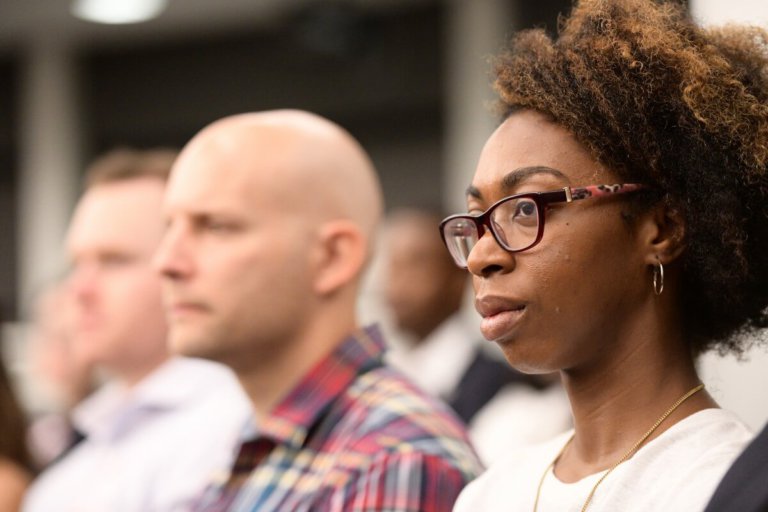
It’s hard to overstate the importance of good public policy. We desperately look for it in the aftermath of 2008’s global recession, when Cyclone Idai claimed more than 1,000 lives in Africa this year and we’ll continue looking for it when global warming passes the point of no return.
But it need not be this way. Good policy-making could have prevented tens of thousands of workers in Japan from being sacked amid plummeting exports after the global financial crisis erupted. It could have put in place an effective disaster risk management system so that there were better protection when the deadly cyclone hit. It would stop the planet from heating 1.5°C above pre-industrial levels, from which the world’s most vulnerable communities stand to suffer the most with the extreme temperatures to come.
All of these could and would have been possible with better regulation by governments.
The upside is we still have time to build policies that can ensure a sustainable and just future.
And this starts with giving the right education to the right people.
Public policy is a complex area of inquiry in the social sciences. But these four North American universities are proving it’s more than just a theoretical exercise, arming students with the practical skills to confront national challenges:
TRACHTENBERG SCHOOL OF PUBLIC POLICY AND PUBLIC ADMINISTRATION – GEORGE WASHINGTON UNIVERSITY
The George Washington University’s Trachtenberg School of Public Policy and Public Administration is at the intersection of public affairs education, research and service. The school is in the heart of Washington, D.C. a global capital city and home to numerous international and domestic public and nonprofit agencies.

George Washington University
The Trachtenberg School is well-known for the quality and calibre of its students, faculty and alumni. Several rankings demonstrate this. It is ranked at joint 14th nationally according to US News & World Report’s 2019 rankings of best public affairs programs. Ninety-five percent of its 2018 graduates were employed in their field or pursuing higher education within six months of graduation. All top journals in public affairs include Trachtenberg School faculty as editors or authors.
The Trachtenberg School offers a graduate experience that uniquely prepares and advances students’ careers in public, private and non-profit sectors. A key element is the prominent role of experiential learning and professional networking embedded in the school’s curricula and career services.
Whether studying for Masters, PhD or graduate certificates, students have opportunities to apply theories and analytical tools to the real world through a variety of research and internship opportunities, or for the many students who work full-time, their current career.
Ensuring this is a Capstone Seminar for students to provide substantive pro bono research and evaluation services for real clients. Armed with this critical skill of integrating theory and practice, students and alumni at the Trachtenberg School are positive changemakers across the globe.
LUSKIN SCHOOL OF PUBLIC AFFAIRS – UNIVERSITY OF CALIFORNIA, LOS ANGELES
The Luskin School of Public Affairs (UCLA Luskin) offers a Bachelor of Arts in Public Affairs; Master’s degrees in Public Policy, Social Welfare, and Urban and Regional Planning; doctoral programs in Social Welfare and Urban Planning; and undergraduate minors in Public Affairs, Gerontology and Urban and Regional Studies.
It combines social work, urban planning and policymaking under one roof. Research areas for faculty here include national and regional issues such as immigration, drug policy, prison reform, healthcare financing, transportation and the environment, national security, economic development, and an aging US and world population. This means students will be studying in an environment of academic cross-collaboration and diverse perspectives.
Leadership programs supplement this by developing students’ professional and leadership skills. Participants of its Leadership Development Program stand to gain the vision, perspectives, resources and tools they need to be active, transformative change agents. There three segments in the program are Senior Fellows program, fellowship/internship award, and hands-on leadership experiences.
This merging of education and practice result in UCLA Luskin graduates who are ready to become agents of change as practitioners, researchers and policymakers in the public, private and non-governmental sectors.

SCHOOL OF PUBLIC POLICY AND GLOBAL AFFAIRS – UNIVERSITY OF BRITISH COLUMBIA
Located at the Vancouver campus of the University of British Columbia (UBC), the School of Public Policy and Global Affairs (SPPGA) is a hub for interdisciplinary learning and research.
UBC’s Master of Public Policy and Global Affairs (MPPGA) is a 20-month program best suited for those aspiring for senior management roles in international institutions, companies, non-governmental organizations and various levels of government in all parts of the world. This highly challenging program is where they can learn multidisciplinary policy analysis, design skills and subject-specific expertise in development, sustainability and global governance.
This rewarding program is complemented by SPPGA faculty’s policy-relevant research and creative activity – both of which inform the Schools’ teaching. With this strong research community, there are opportunities on campus and in the community for students to access knowledge exchange and forge links between research, development and innovation.
Through its paid Work Term opportunities, including the Co-op program, students can also gain professional experience which include personalized support for career planning, and professional skills training. Global Policy Project, International Exchange Program, and more provide further experiential learning opportunities to UBC students.
HARRIS SCHOOL OF PUBLIC POLICY – UNIVERSITY OF CHICAGO
The Harris School of Public Policy approaches public policy as a science, one that should be based on data and measurable impact.
Whether in its six full-time Master’s programs, its flagship Master of Public Policy (MPP), PhD program or the nine joint degrees, students will develop the analytical skills necessary to explore the issues the care about most.
For example, the MPP includes coursework that develops critical thinking and analytical skills to make data-driven decisions. With a multidisciplinary core curriculum, students will learn from sociology, political science, statistics, econometrics, political economy, organizational theory, and program evaluation.
Applied experiences in Chicago and beyond let students network with professionals in the field to pursue urgent issues, using the latest science and technology.
At its Harris Policy Labs, its signature applied experience program, teams of second-year students will be able to apply what they learn to real-world policy challenges at major client institutions in Chicago and beyond. It counts the following as its past and present clients: past and current clients include: City of Gary, Cook County Health and Hospitals System, Metropolitan Planning Council, Navy Pier, Oxfam America, the Illinois Department of Human Services, and the University of Chicago Medicine.
There are also summer internships and a mentor program for students seeking more industry experience.
Liked this? Then you’ll love…
ANU Crawford: Study global security challenges and gain extensive policy experience
Ignite your social sciences and policy career in the home of the Experiential Liberal Arts







